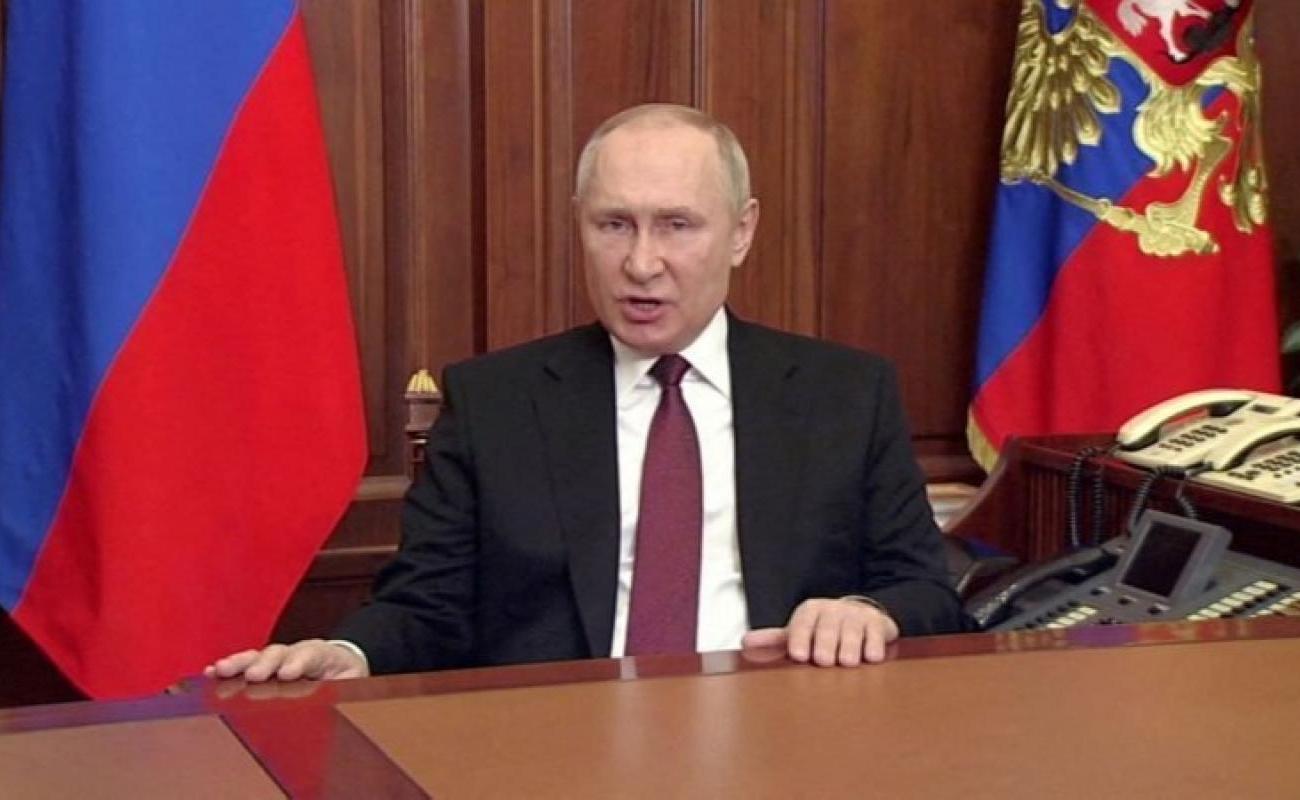The UN International Court of Justice rejected Russia's objections and took over the case regarding Putin's statements about "genocide in Donbass".

The UN International Court of Justice in The Hague has recognized its jurisdiction in Ukraine's "genocide" lawsuit against Russia. Kiev claims that Moscow used false accusations of genocide in Donbass to justify its invasion of Ukraine in late February 2022.
Russia tried to prove that, from a legal point of view, the UN Court has no jurisdiction to consider this claim of Ukraine.
The UN court partially rejected Russia's claims. He recalled that the Russian authorities repeatedly accused Kiev of genocide against the Russian-speaking population of Donbass, when they explained the need for a so-called "special military operation".
Therefore, the UN court decided to partially consider the merits of Ukraine's claims.
At the same time, he rejected Ukraine's claim that unjust accusations of genocide could in themselves be a violation of the international convention on the prevention of genocide.
What Ukraine accused Russia of
Ukraine filed this lawsuit in the early days of the war. Ukraine accused Russia of misusing and distorting the concept of genocide by falsely accusing Ukraine of genocide and then using it as an excuse.
Thus, according to the representatives of Ukraine, Russia (and Russian President Vladimir Putin personally) abused its rights and violated its obligations under the international convention on the prevention and punishment of genocide.
On February 24, 2022, President Vladimir Putin justified the start of the war against Ukraine: "The purpose of the special operation is to protect people who were exposed to abuse and genocide by the regime in Kiev for eight years."
This quote from Putin was repeated at the UN court by representatives of both countries over and over during the day of the hearing. Those words were the basis of this legal dispute. And it was their interpretation that made up most of the arguments of the parties.
The 1948 Genocide Convention is one of the main documents of international law. It not only defines what exactly can be considered genocide, but also establishes the obligation of participating countries to prevent such crimes and punish their perpetrators.
The emergence of such a document is the response of the international community to the Holocaust, one of the most painful crimes of the 20th century. Ukraine and Russia signed and a few years later — in 1954 — ratified the Convention while still part of the USSR.
Lawyers representing Ukraine refer to Article IX of the Convention, which stipulates that disputes between the parties regarding the interpretation and application of the Convention are subject to the International Court of Justice of the United Nations.
The position of Russia
Russian representatives insisted that Putin's words about genocide were a "rhetorical turn", not based on the definition of international law.
"Making statements about genocide is not contrary to the law, according to international law and the Convention on Genocide... There was no reference to the Convention on Genocide in any speech or document expressing the official position of the Russian Federation," said Gennady Kuzmin, ambassador with special authorized by the Ministry of Foreign Affairs of the Russian Federation.
However, in their speeches, both he and Russia's deputy permanent representative to the UN, Maria Zabolotska, continued to use the microphone to talk about the "continuous shelling of civilians in the Donbass by the Kiev regime" and its "Nazi roots".
Russia also insists that it could not have abused its rights under the Genocide Convention, as it does not allow the use of force.
"In order to complain about the abuse of rights, it must first be defined," said Gennady Kuzmin.
What is special about this case?
Lawyers and international law experts called the case "significant" even before it was heard. After all, Ukraine is trying to make Russia responsible for starting the war in conditions where its options are very limited, especially because of Russia's veto power in the UN Security Council.
As explained by Yale University professor Harold Koch, who represents the interests of Ukraine with his team, the case of genocide has two aspects: factual and legal.
Factual refers to whether the Ukrainian government actually committed genocide in the Donbass, as claimed by Russian authorities and propaganda.
Legal — whether Russia has a legal right under the Convention it has signed to prevent and punish the crime of genocide by the use of military force. International law experts called this approach "interesting". Before this hearing, the Genocide Convention was held in the UN court only twice: in 1993, when Bosnia and Herzegovina sued Serbia, accusing it of trying to exterminate Bosnian Muslims, and in 2019, Gambia filed a lawsuit against Myanmar, for genocide. on the Muslims there.
Bosnia and Herzegovina won a verdict against Serbia, Montenegro and the Bosnian Serb leaders only in 2007 — 14 years after the lawsuit was filed. The case of Gambia v. Myanmar has not yet reached a hearing on the merits.
The consideration of the merits in the case of Ukraine v. Russia can also take years.
What does Ukraine get?
The decisions of the UN Court are mostly symbolic in nature, as it does not have an independent force to enforce the law. That is, the Court itself cannot force states to comply with its decision.
But his judgment is still important.
The UN International Court of Justice is the highest judicial body in the world. Only disputes between states are within its jurisdiction.
A decision in favor of Ukraine in the case of genocide will first of all allow Kiev to legally demand future reparations from Moscow and strengthen its position in possible negotiations with it.
Lawyers representing Ukraine also believe that any court rulings in Ukraine's favor, paving the way for the payment of compensation, will be a powerful lever of influence in case of negotiations between Kyiv and Moscow. Although now the prospects for such negotiations seem uncertain.
